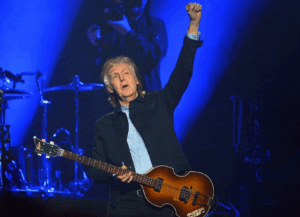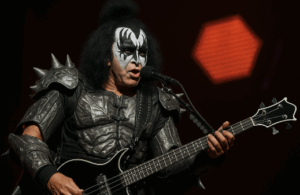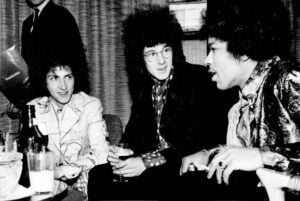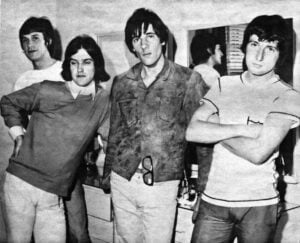7 Rock Bands That Were Ruined by Their Lead Singers
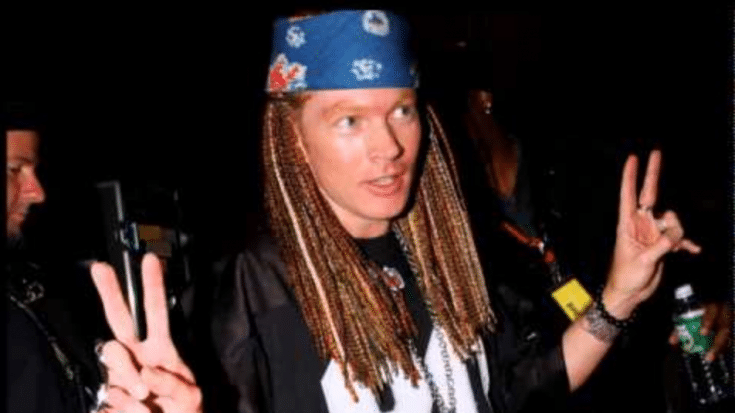
via Axl Rose / YouTube
Music bands often soar to incredible heights, riding the waves of their captivating sounds and the charisma of their frontmen or frontwomen. Yet sometimes, the very elements that bring a band fame and fortune can also spell its downfall. In many cases, it’s the lead singers who, while they may possess extraordinary vocal talent, end up causing turmoil and even the demise of their bands. Here are seven rock bands that faced hardships or were ultimately torn apart due to the actions of their lead singers.
1. Guns N’ Roses – Axl Rose
View this post on Instagram
Guns N’ Roses was once at the pinnacle of hard rock fame with hits like “Sweet Child o’ Mine” and “November Rain.” Axl Rose’s unique voice and energetic performances helped propel the band to stardom. However, internal conflicts, largely attributed to Axl’s erratic behavior and demands, plagued the group. The difference in artistic vision and Axl’s unpredictable antics led to the departure of key members like Slash and Duff McKagan, leaving the band’s future uncertain for years.
The group experienced a rotating lineup of musicians, and for a long while, Axl was the only remaining member from the original ensemble. Fans witnessed the band’s disarray, feeling the tension at live shows and through delayed album releases, most notably the infamous “Chinese Democracy,” which took over a decade to finish. The band’s chemistry suffered greatly, overshadowing the talent that once made them iconic.
2. The Beach Boys – Brian Wilson
View this post on Instagram
The Beach Boys, synonymous with the Californian surf rock scene, gave us timeless summer anthems. Brian Wilson, the lead singer and chief songwriter, was the mastermind behind their distinctive sound. But as time went on, Wilson’s mental health issues and substance abuse strained his relationship with the band. His ambitious project “Smile” was a turning point where his perfectionism led to endless recording sessions and eventually, the album’s cancellation.
This period marked a decline in Wilson’s active participation in the band, and although The Beach Boys continued to make music, there was a noticeable shift in their dynamic and output. Brian’s presence was missed, and the band’s inability to replicate their earlier success without his full engagement signaled a change in their trajectory as a band. Wilson’s personal struggles had an undeniable impact on the group, leaving fans to wonder what could have been if circumstances had been different.
3. Oasis – Liam Gallagher
View this post on Instagram
Oasis, the Britpop sensation of the ’90s, was notorious for the feuding Gallagher brothers. Liam Gallagher was known for his brash attitude on and off the stage, which often caused friction within the group. His confrontational nature and spats with brother Noel, the group’s guitarist, and main songwriter, frequently made headlines, overshadowing the band’s music.
The constant clashes ultimately led to Noel’s departure from the group in 2009 after a particularly heated altercation. Following this, Liam attempted to keep the band going under the name “Beady Eye” with the remaining members of Oasis, but they never managed to recreate the success of Oasis. The legacy of the band is now as much about their bickering as it is about their hits like “Wonderwall” and “Don’t Look Back in Anger,” leaving fans to lament the potential squandered by their discord.
4. The Doors – Jim Morrison
View this post on Instagram
The Doors, an iconic band of the psychedelic rock era, were as well-known for Jim Morrison’s poetic lyrics as they were for his wild behavior. Jim’s unpredictable performances and frequent run-ins with the law became as prominent as their music. His substance abuse issues often led to erratic concert experiences for the fans and created tension within the band.
Jim’s antics reached a crisis point when he was arrested for indecent exposure during a concert in Miami, an event that severely damaged the band’s reputation. The legal battles and public backlash that followed took a toll on the group. Morrison’s untimely death at 27 further sealed the band’s fate, leaving The Doors to grapple with the loss of their magnetic leader and the challenge of moving forward without him.
5. The Sex Pistols – Johnny Rotten
View this post on Instagram
The Sex Pistols were pioneers of the punk rock movement, but their time in the spotlight was brief, largely due to the behavior of their lead singer, Johnny Rotten. Rotten, whose real name is John Lydon, was known for his abrasive demeanor and penchant for causing controversy. His on-stage antics and public statements often shocked audiences and led to conflict both with the public and within the band.
Tensions within the band came to a head during their US tour, resulting in Rotten’s departure from the group. The tour was catastrophic, marked by canceled shows and outbursts, and the band dissolved soon after. The Sex Pistols’ inability to manage their internal strife and Rotten’s contentious nature meant that their impact, while lasting, was confined to a short and turbulent existence.
6. Van Halen – David Lee Roth
View this post on Instagram
Van Halen burst onto the rock scene with a sound that was both wildly innovative and undeniably catchy. However, the dynamic between the members, especially between lead singer David Lee Roth and guitarist Eddie Van Halen, was fraught with tension. Roth’s showmanship and flamboyant style were vital to the band’s image, but his ego often clashed with Eddie’s focus on musical proficiency.
Roth eventually left the band to pursue a solo career, leading Van Halen to continue with a new lead singer, Sammy Hagar. While the band had success with both singers, the constant shift in lineup and the public feuds splintered the band’s identity. The struggle to find a balance between Roth’s larger-than-life personality and the rest of the band’s vision left a mark on their legacy.
7. The Byrds – Roger McGuinn
View this post on Instagram
The Byrds took flight with their jangly guitars and harmonious vocals, contributing to the folk-rock scene of the 1960s. However, frontman Roger McGuinn’s leadership was often questioned by other members, notably Gene Clark and David Crosby. Clark left the band due to his fear of flying, while tensions with Crosby culminated in his dismissal, showing the cracks in the group’s unity.
As the lineup changed, the band’s musical direction became uncertain, and the once cohesive unit that produced hits like “Turn! Turn! Turn!” was no more. McGuinn tried to maintain the band’s identity, but without the original members’ creative synergy, The Byrds struggled to reach the heights of their early success. Internal power struggles effectively clipped the wings of a band that once soared.







